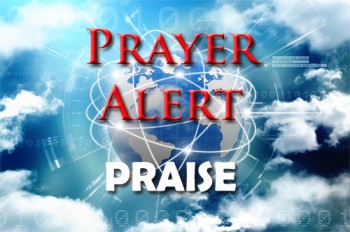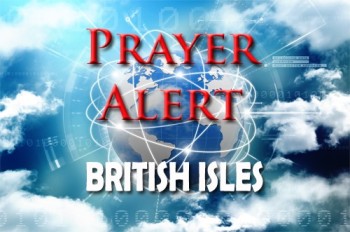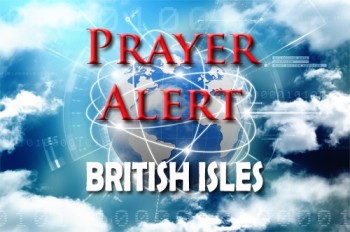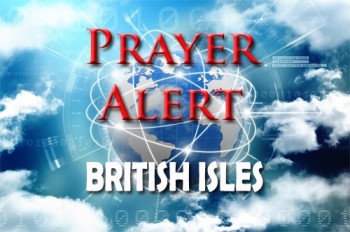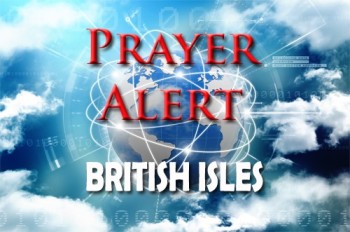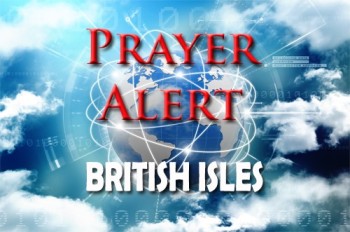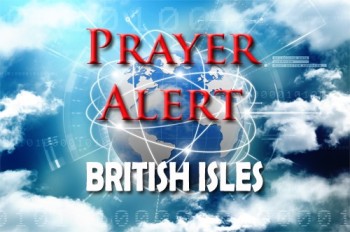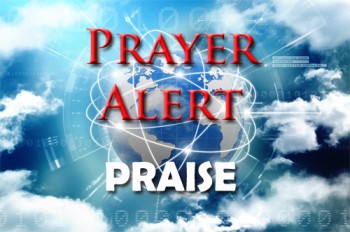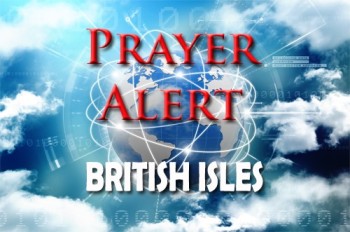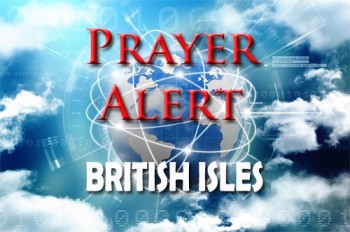Displaying items by tag: United Kingdom
Nurse back at work after suspension for misgendering a transgender paedophile
Christian nurse Jennifer Melle has returned to work after more than ten months of suspension following an incident involving a transgender prisoner. She was disciplined after referring to the patient as ‘mister’ while speaking with colleagues, despite reporting that she had faced racial abuse and physical threats during the encounter. Although her NHS trust has confirmed it will take no further action, she remains under investigation by the Nursing and Midwifery Council over the language used and for speaking publicly about her treatment. Melle, a south London nurse with twelve years of service, is pursuing an employment tribunal, alleging harassment, discrimination and breaches of freedom of belief. She has expressed gratitude for support received throughout the ordeal, especially by the Christian Legal Centre.
Mandelson’s lawyers say his arrest was due to ‘baseless’ flight claims
On 23 February, Lord Mandelson was arrested at his London home on charges of misconduct in public office and later released on bail pending further investigation. His lawyers said the arrest was made due to claims that he might leave the country, but described them as ‘baseless’. The Metropolitan Police declined to comment. The investigation relates to allegations that, while serving as a minister, he shared market-sensitive government information with the late convicted offender Jeffrey Epstein. Officers executed search warrants at properties in Wiltshire and Camden before questioning him for nine hours. Lord Mandelson, who has always maintained that he has acted lawfully and done nothing wrong, says he is cooperating fully. Meanwhile, the police have finished searching the properties belonging to Andrew Mountbatten-Windsor, who was arrested on similar charges on 19 February. He has also been released on bail.
Student loans: over twenty MPs call for drastic reform of system
More than twenty Labour MPs have called for reform of England’s student loan system. Leading a parliamentary debate, Jas Athwal argued the system is unfair, with many graduates seeing balances rise despite regular repayments. Under current arrangements, Plan 2 borrowers pay interest linked to RPI inflation plus up to 3%, depending on earnings. From April 2027, the salary threshold triggering repayments will be frozen for three years, a move critics say effectively increases the burden during a cost-of-living crisis. Some MPs described the terms as retrospective and punitive, while others backed scrapping tuition fees entirely. Kemi Badenoch also urged lower interest rates, and the Conservatives have also said they would close 100,000 university places to alleviate debt and fund apprenticeships instead, arguing that some degrees were leaving graduates worse off. Keir Starmer acknowledged concerns and said the government would consider ways to make the system fairer.
SEND pupils face major shakeup in new government proposals
Parents in England may soon face limits on choosing special schools for their children under sweeping reforms to special educational needs and disabilities provision. The white paper proposes that councils provide families with a shortlist of suitable placements, considering parental preference alongside value for money and the needs of all children in the area. Ministers say the changes aim to place more pupils closer to home, reducing long travel times and rising transport costs (now up to £3.4 billion a year). £4 billion has been pledged to expand specialist places within mainstream schools and reduce reliance on expensive independent providers. Private placements can cost more than twice as much as state-sector options, adding pressure to local authority budgets. While parents will retain the right to appeal decisions, tribunals will no longer be able to name a specific school. Broader reforms also include reviewing the future use of care plans.
By-election: Reform member suspended for racist and misogynistic social media posts
Reform UK has suspended a campaign figure in the Gorton and Denton by-election, which they hope to win, after reported social media posts containing racist and misogynistic remarks. Adam Mitula, said to be involved in candidate Matt Goodwin’s campaign, allegedly questioned the scale of the Holocaust and made offensive comments about Jewish women and transgender people. He claimed that the posts were taken out of context, and angrily defended his reputation. Reform UK declined to comment on internal disciplinary matters. Labour’s deputy leader Lucy Powell urged Goodwin to distance himself from the remarks, warning that failure to do so would suggest tolerance of such views. The controversy comes during a closely watched contest in which Goodwin has positioned the vote as a challenge to Keir Starmer, focusing his campaign on borders, crime and cultural issues. Update: the Green Party won the by-election with a large majority. See
Cornwall: UK’s first deep geothermal power plant
On 26 February, the UK’s first deep geothermal power plant began generating electricity in Cornwall after nearly twenty years of development. The United Downs project, led by Geothermal Engineering Ltd, drilled three miles into granite rock to access water heated to almost 200°C. The super-heated water will drive turbines, producing constant renewable electricity for up to 10,000 homes. Unlike wind or solar, geothermal provides continuous ‘always-on’ power. The site will also extract lithium from underground fluids, creating the UK’s first domestic commercial supply of this critical mineral used in electric vehicle batteries. While hailed as a major step for energy innovation, experts note that high upfront drilling costs may limit rapid expansion without sustained investment and supportive policy. Three more such projects are planned, reflecting growing interest in harnessing subterranean heat. Other countries are already doing this more widely; the Netherlands plan to have a quarter of their homes heated by geothermal by 2050.
Bafta awards: newcomer wins awards for portrayal of Tourette’s campaigner
Robert Aramayo, a relative newcomer, was a surprise winner at the Bafta awards, ahead of several better-known stars. Born in Hull, he won two awards (Best Actor and Rising Star) for his portrayal of John Davidson in I Swear. The film tells the story of Davidson’s experience growing up with Tourette’s syndrome in 1980s Scotland. Aramayo, who trained at Wyke College and developed his craft at Hull Truck Theatre, became emotional while accepting the awards, later saying the achievement ‘blows my mind’. Local educators and theatre leaders described his success as inspirational for young people across the city. Hull Truck’s artistic director praised both his talent and integrity, noting the vital role regional theatres play in nurturing performers. Aramayo has previously spoken of his pride in Hull and gratitude for early mentors who supported his journey from local stages to international recognition.
‘Snowdrops’ pause for thought from Archbishop Stephen
On Shrove Tuesday, instead of speaking about pancakes or fasting, Archbishop Stephen Cottrell reflected on snowdrops in his ‘pause for thought’ on Radio 2. Walking through his garden in Bishopthorpe, he was struck by their fragile beauty and quiet strength. Blooming in winter’s cold earth, snowdrops herald the coming of spring, offering hope when the landscape still seems lifeless. Yet they are fleeting; by March they have faded. He recalled a deeply personal memory from thirty years ago, when he took the funeral of his one-year-old godson. The Sisters at the hospice placed snowdrops on the small coffin. To him, they spoke more eloquently than words of a life that was short, fragile, and beautiful. Linking this reflection to Lent and Easter, he reminded listeners that every human life has a beginning and an end, each miraculous and precious. Snowdrops, appearing in winter and disappearing quickly, invite us to reflect on mortality, hope, and the abundant life brought through Christ’s death and resurrection.
Andrew arrested on suspicion of misconduct
Following an investigation by Thames Valley police, Andrew Mountbatten-Windsor has been arrested on suspicion of misconduct in public office. Officers detained the 66-year-old at the Sandringham estate and are searching properties in Norfolk and Berkshire, including Royal Lodge in Windsor. The arrest follows a number of complaints that he shared confidential material with convicted sex offender Jeffrey Epstein. Andrew has consistently denied wrongdoing, and has not commented on the latest allegations. Misconduct in public office involves a public official wilfully neglecting duty or abusing the public’s trust without reasonable justification. To protect the integrity of the investigation, the police are limited in what they can disclose due to contempt of court laws and privacy rules. In a statement, King Charles III said he learned of the arrest ‘with the deepest concern’ and stressed that the law must take its course, pledging full cooperation while continuing royal duties.
Local council elections reinstated after government U-turn
Thirty English councils are scrambling to reinstate local elections after the Government reversed plans to delay them until 2027. The ballots, affecting more than 4.5 million voters, will now go ahead on 7 May following legal advice sought after a challenge from Reform UK. The ministry of housing and local government confirmed the U-turn, alongside a £63 million fund to support council reorganisation. Nigel Farage described the decision as a 'victory for democracy', claiming the Government had backed down. However, election administrators warn that months of essential preparation have been lost. Officials had paused planning to avoid unnecessary expense and now face an intense period of catch-up to secure polling stations, staff, and smooth operations. Councillors across parties have expressed frustration, citing confusion and instability caused by repeated changes. Some fear wider plans for devolution and local government reform are now uncertain, leaving councils and residents seeking clarity.
